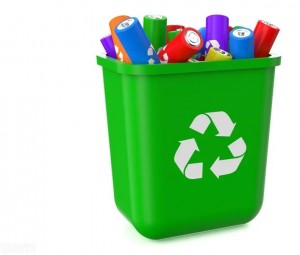In the year 2000, there was a major shift in battery technology that created a tremendous boom in the use of batteries. The batteries we are talking about today are called lithium-ion batteries and power everything from cell phones to laptops to power tools. This shift has caused a major environmental problem because these batteries, which contain toxic metals, have a limited life span. The good thing is that these batteries can be easily recycled.
Surprisingly, only a small percentage of all lithium-ion batteries in the U.S. get recycled. The bigger percentage end up in landfills, where they can contaminate soil and groundwater with heavy metals and corrosive materials. In fact, it is estimated that by 2020 more than 3 billion lithium-ion batteries will be discarded worldwide each year. While this is a sad state of affair, it gives an opportunity to anyone who want to venture into recycling of batteries.

Are lithium batteries worth money?
Lithium battery recycling is a step in the use of lithium batteries to recycle and reuse. Lithium ion battery is an ideal energy storage device. It has high energy density, small volume, light weight, long cycle life, no memory effect and environmental protection. At the same time, it has good safety performance. However, with the rapid development of science and technology and the increase of new energy vehicles, the demand for power batteries is increasing day by day. Lithium batteries have also been widely used in various electronic products such as mobile phones and notebook computers. In our life, there are more and more waste lithium ion batteries to be dealt with.
Invest in used EV battery packs;
Recycle lithium-ion battery components;
Mine cobalt or lithium compounds.
The conclusion is that recycling batteries has the potential to be a very profitable business. The problem right now is the relatively high cost of recycling the batteries. If a solution can be found for this, then fixing up old batteries and making new ones can easily turn into a very profitable business. The goal of recycling is to minimize the use of raw materials and maximize economic and environmental benefits. A step by step analysis of the process would be a great start for an enthusiastic entrepreneur looking to invest in the profitable recycling battery business.
Post time: Apr-24-2022